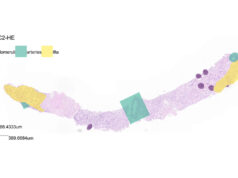 Sangamo Therapeutics has announced dosing of the first patient in the Phase 1/2 STEADFAST clinical study evaluating TX200—an investigational, wholly owned, autologous chimeric antigen receptor regulatory T cell (CAR-Treg) cell therapy product candidate for the prevention of immune-mediated rejection in HLA (human leukocyte antigen)-A2 mismatched kidney transplantation from a living donor.
Sangamo Therapeutics has announced dosing of the first patient in the Phase 1/2 STEADFAST clinical study evaluating TX200—an investigational, wholly owned, autologous chimeric antigen receptor regulatory T cell (CAR-Treg) cell therapy product candidate for the prevention of immune-mediated rejection in HLA (human leukocyte antigen)-A2 mismatched kidney transplantation from a living donor.
“This is an exciting time for the renal transplant community and more broadly for medicine,” said Jan-Stephan Sanders (University Medical Center Groningen, Groningen, The Netherlands), investigator of the STEADFAST study. “The hope is that CAR-Treg cell therapies reduce the need for lifelong immunosuppressive medications, which are known to have challenging side-effects. I look forward to the dosing of more patients and seeing data from the study to understand the potential of TX200.”
Approximately 21–26% of transplanted kidneys are estimated to be HLA-A2 mismatched, as per a Sangamo press release. To prevent graft rejection, transplanted patients are treated with lifelong immunosuppressive therapy, which impacts the body’s immune system and is associated with multiple side-effects, including an increased risk of severe life-threatening infections, malignancies, cardiovascular disease, and other drug-related toxicities, such as nephrotoxicity, which can impact the function and survival of the newly transplanted kidney.
TX200 was designed with the potential to prevent kidney rejection by reducing local inflammation and promoting immunological tolerance to the graft. TX200 is composed of autologous Treg cells engineered to express an HLA-A2 CAR. This investigational cell therapy is being assessed in HLA-A2 negative patients receiving a mismatched HLA-A2 positive kidney from a living donor. TX200 cells are expected to localise to the graft and activate upon binding to the HLA-A2 antigen. Through their ability to regulate the immune system, TX200 cells may protect the graft from immune-mediated rejection and reduce or eliminate the need for lifelong treatment with immunosuppressants.
According to the release, in the STEADFAST clinical study, each patient undergoes a leukapheresis procedure to collect their white blood cells, after which their Treg cells are isolated, genetically engineered, and then cryopreserved. The patient subsequently undergoes transplantation surgery to receive a kidney from a living donor. Following a recovery period, the patient receives their personalised TX200 investigational cell therapy. Dosing of patients therefore occurs several months after patient enrolment.
The STEADFAST study is a multicentre, open-label, single ascending dose, dose-ranging Phase 1/2 clinical trial. Study sites are currently open and recruiting participants in Belgium, The Netherlands, and the UK. The primary objective of the study is to evaluate the safety and tolerability of TX200. Key secondary objectives include the evaluation of the effect of TX200 on acute graft-related outcomes and on long-term safety outcomes, as well as the evaluation of the pharmacodynamic and pharmacokinetic effects of TX200. Routine post-transplant biopsies will allow for the early detection of engineered CAR-Tregs in the kidney. The adjustment and tapering of standard immunosuppressive therapy will be at the discretion of the investigator. Sangamo expects to dose a second patient in the STEADFAST study in the middle of 2022.











